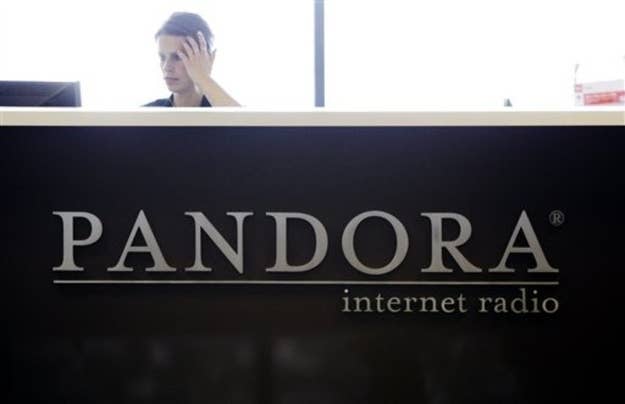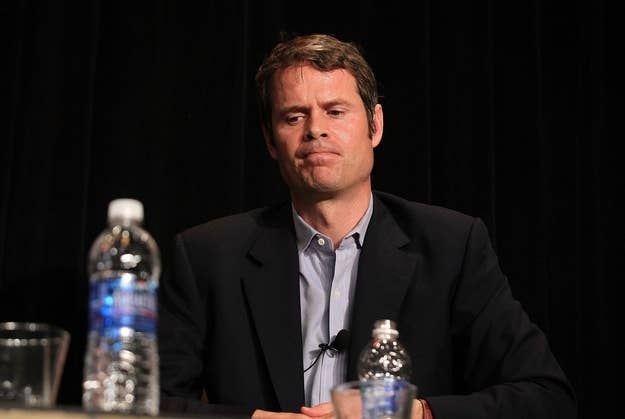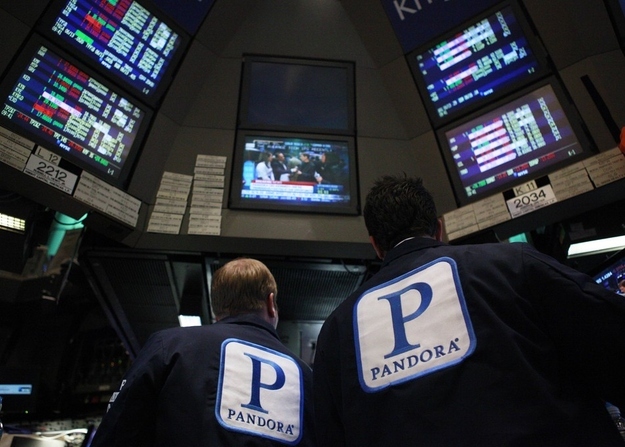
I didn’t necessarily want to work for Pandora. I had been [to the website] before and hated it, but they had gotten a lot better. They had this intense interview process — I had to get interviewed by, like, 12 people and meet the COO. I made up this story that I should get the job because I loved two things, computers and music. When I was saying it, I realized it was true. That’s how I got the job.
A lot of tech companies have jobs that are half customer service, half tech support. At Pandora, it was called "listener support." Our department was in charge of figuring out how to make different rules and guidelines [for how to respond to customers.] It was flexible. We could come in whenever we wanted for eight-hour stretches. We had a certain number of emails to answer every day, which increased over time. In the beginning, we’d just divide them up. After we went public, it became more of a normal corporate customer service team. I saw a lot of people quit. Toward the end, there was a schedule. The lunches were very set, and there were timeclocks.
It used to be that you’d put in Modest Mouse and then hear all these crazy college indie bands. That was how it was created. It was great. But people in the Midwest hated it. Now, you put in Modest Mouse and you hear Maroon 5. It’s much more like radio. Some people got angry, but the majority like the changes.
And how much we could tell customers about playlist algorithms was something we were constantly figuring out. The way we did it was to be vague: “That’s just the way Pandora works.” We had a curtain; we’re not going to tell you exactly what’s what’s happening behind it, just like Google doesn’t say, “This is how Google works.”

In our early days, it was a thing that we’d answer every email. People liked that. But then there were thousands of emails a day. It was an avalanche. You were told to work with blinders on, just work through it, and do as much as you can and try not to let it crush your soul. Which it did.
I think email strips away the human being part and people would forget that I’m a person. My go-to line was, “Hey, thanks for your feedback.” I use it in real life now. It’s the perfect mixture of “I don’t give a shit about you” and “I’m trying to be polite.”
People would write in for a billion different problems. At one point, there was a fridge that had Pandora. People would say, “I have music on my fridge and I have no idea what to do.” There was a treadmill with Pandora and we didn’t even know we had that!
Half the questions were tech, half were administrative — password resets, etc. The device stuff was whatever we broke that week. The engineers would push out updates and no matter what we fixed, we broke something else. So one week, it’d be a thousand Android emails. The next, a thousand iPhone emails.
We would get the raw emails. Rants, crazy rants, and sometimes voicemails. We didn’t have phones but there was a number to call in. I had a whole folder of phone messages. A lot of people were drunk and yelling. They’d often be really sorry, and write back: “I was drunk, I didn’t mean to yell at you.” Like I was their mom, or something. People were occasionally creative with their insults, swear combinations that I can’t even remember now. Everyone on our team would share them. Then, after a while, we had to stop talking about them and sending them around because it looked bad, legally.
People used to send our founder, Tim [Westergren], paintings. It was insane.
With customer service, there’s usually a solution. Very few times do you have to send someone away angry. A lot of times, people just didn’t know where we were coming from when we made changes. When we instituted a 40-hour listening limit for the month — which used to be unlimited and free — a lot of people were furious and accused us of being this greedy company. But this is what we have to do to be here and give you free music.

There were a lot of decisions Pandora made about advertising that I felt like we could have done better. We run whatever ads are on mainstream radio or TV, so we took a lot of money from people I thought were weird – political ads, Super PACs, groups that attacked gay people. One of them was for Speakup University. One gay man wrote in, “Why are you telling me that I’m wrong?” Our big response was, basically, “We’re running an ad and don’t take it personal.”
Another thing was Match.com, one of our biggest advertisers. Their ads were plastered everywhere. We have filters that remove sexual or adult ads but the company decided that we can’t filter Match.com ads. And their ads have, like, naked girls in bikinis! People would write me, “Please let me turn off these naked women, my wife thinks I’m cheating.” I had to say, sorry, it’s an ad, deal with it.
It really was important that I was into music and have been playing in bands my whole life. I was glad that it was important to Pandora. Everyone was in a band, which is something that faded over time. I would talk to other people in the company — “Have you noticed that there aren’t a lot of musicians around here any more?”
This is the first of an occasional series of interviews with tech workers that one doesn't often hear from — the kind who don't take the stage at conferences and yet play a crucial role in the internet economy. This interview has been edited and condensed. If you have any interest in talking to us (or know someone who might), please be in touch: reyhan.harmanci@buzzfeed.com.
